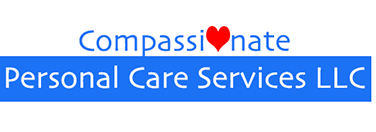Technology Trends in Home Health Care: Improving Communication and Monitoring Systems

In an era defined by rapid technological advancement, the landscape of home health care is undergoing a transformative evolution. From communication tools that facilitate seamless collaboration among care team members to remote monitoring systems that empower patients to take control of their health, technology is revolutionizing the way care is delivered in the comfort of one’s home. Let’s delve into some of the key technology trends shaping the future of home health care and their impact on improving communication and monitoring systems.
Telehealth and Virtual Visits
Telehealth has emerged as a game-changer in home health care, enabling patients to connect with healthcare providers remotely through video conferencing and other virtual platforms. Virtual visits not only eliminate the barriers of distance and transportation but also facilitate more frequent and convenient access to care. Whether it’s a routine check-up, medication management, or post-discharge follow-up, telehealth empowers patients to receive timely and personalized care from the comfort of home while reducing the need for unnecessary hospital visits.
Wearable Devices and Remote Monitoring
Wearable devices equipped with sensors and connectivity capabilities are revolutionizing remote patient monitoring, allowing healthcare providers to track vital signs, detect anomalies, and intervene proactively when needed. From smartwatches that monitor heart rate and activity levels to specialized devices for managing chronic conditions like diabetes or hypertension, wearable technology empowers patients to monitor their health in real-time and share data with their care team for timely interventions and adjustments to treatment plans.
Mobile Apps for Care Coordination
Mobile applications designed for care coordination and communication are streamlining workflows and enhancing collaboration among care team members in home health care settings. These apps facilitate secure messaging, task assignment, and real-time updates on patient status, ensuring that everyone involved in a patient’s care is on the same page. By centralizing communication and information sharing, mobile apps improve efficiency, reduce errors, and enhance the quality of care delivered to patients at home.
Remote Patient Engagement Platforms
Engaging patients in their care is essential for achieving positive health outcomes, and remote patient engagement platforms play a crucial role in fostering active participation and empowerment. These platforms provide patients with access to educational resources, self-management tools, and personalized care plans tailored to their unique needs and preferences. By empowering patients to take an active role in managing their health and well-being, remote patient engagement platforms promote adherence to treatment regimens and facilitate shared decision-making between patients and providers.
Artificial Intelligence and Predictive Analytics
Artificial intelligence (AI) and predictive analytics are unlocking new possibilities in home health care by analyzing vast amounts of data to identify patterns, predict health trends, and personalize care interventions. AI-powered algorithms can flag potential risks, predict adverse events, and recommend personalized interventions based on individual patient data and historical trends. By harnessing the power of AI and predictive analytics, home health care providers can deliver proactive, data-driven care that anticipates and addresses patients’ needs before they escalate into serious health issues.

As technology continues to advance at a rapid pace, the future of home health care is brimming with possibilities. From telehealth and remote monitoring to mobile apps and artificial intelligence, innovative technologies are revolutionizing communication and monitoring systems, enabling more efficient, effective, and patient-centered care delivery. By embracing these technology trends and leveraging their potential to enhance communication, coordination, and patient engagement, home health care providers can transform the way care is delivered in the home setting, improving outcomes and enriching the lives of patients and their families.
